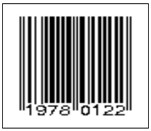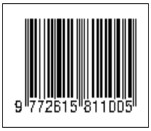PENGARUH KEPERCAYAAN SISWA PADA MATEMATIKATERHADAP KEMAMPUAN BERPIKIR KRITIS DAN HASIL BELAJAR SISWA
Abstract
Keywords
Full Text:
PDFReferences
Eynde, P., De Corte, E., & Verschaffel, L. (2002).Framing student’s mathematics-related beliefs: a quest for conceptual clarity and a comprehensive categorization.Dalam Leder, G.C., Pehkonen, W., &Torner, G. (Eds.), Beliefs; A Hidden Variable in Mathematics Education?(pp.13-37). London: Kluwer Academics Publisher.
Goldin, G., Rösken, B., & Törner, G. (2009). Beliefs – no longer a hidden variable in mathematical teaching and learning processes. Dalam Jürgen Maaß & Wolfgang Schlöglmann (Eds), Beliefs and Attitudes in Mathematics Education (pp.1-18). Rotterdam, The Netherlands: Sense Publishers.
Gómez-Chacón, I. M., García-Madruga, J. A., Rodríguez, R., Vila, J. Ó., & Elosúa, M. R. (2011). Mathematical beliefs and cognitive reflection: Do they predict academic chievement?. Proceedings of the MAVI-17 Conference, Ruhr-Universität Bochum, Germany, 64-73.
Kerkman, Dennis D. & Johnson, Andrew T. (2014). Challenging multiple-choicequestions to engage critical thinking. InSight: A Journal of ScholarlyTeaching, 9, 92-97.
Malmivuori, Marja-Liisa. (1994). Study on affective factors in mathematics learning. Proceedings of the Nordic Conference on Mathematics Teaching (NORMA-94), Lahti, 127-131.
Mutodi, Paul & Ngirande, Hlanganipai. (2014). The influence of students` perceptions on mathematics performance: A case of a selected high school in South Africa. Mediterranean Journal of Social Sciences, 5(3), 431-445.
Nitko, A. J. & Brookhart, S. M. (2011). Educational assesment of students 6th edition. USA: Pearson Education, Inc.
Samanci, Nilay Keskin. (2015). A study on the link between moral judgmentcompetences and critical thinking skills. International Journal ofEnvironmental & Science Education, 10(2), 135-143. Doi:10.12973/ijese.2015.236a.
Snyder L. G. & Snyder, M. J. (2008).Teaching critical thinking and problem solving skills. The Delta Pi Epsilon Journal, 50(2), 90-99.
Suthar, V., Tarmizi, R. A., Midi, H., & Adam, M. B. (2010). Students’ beliefs onmathematics and achievement of university students: Logistics regressionanalysis. Procedia Social and Behavioral Sciences, 8, 525–531.
DOI: https://doi.org/10.35327/gara.v14i1.138
Refbacks
- There are currently no refbacks.
Copyright (c) 2020 GANEC SWARA

This work is licensed under a Creative Commons Attribution-ShareAlike 4.0 International License.










